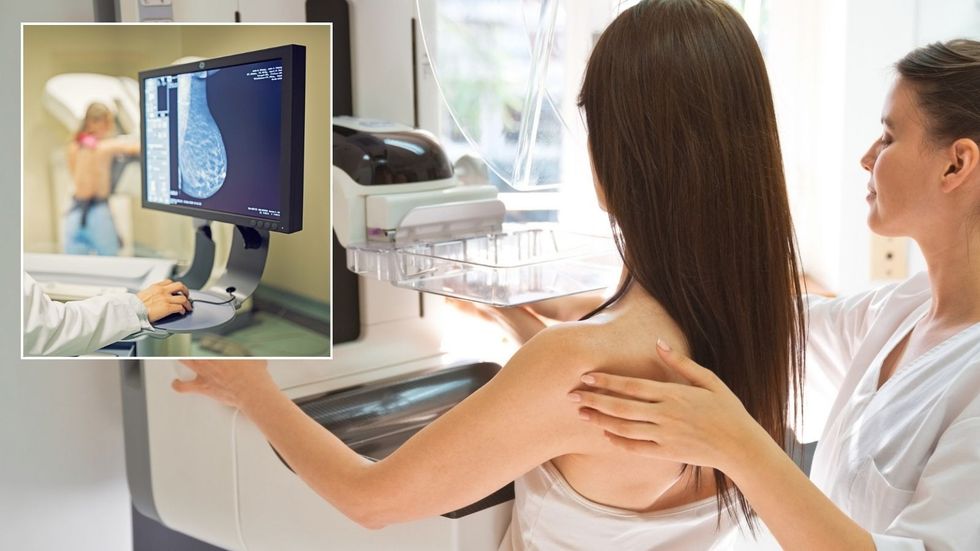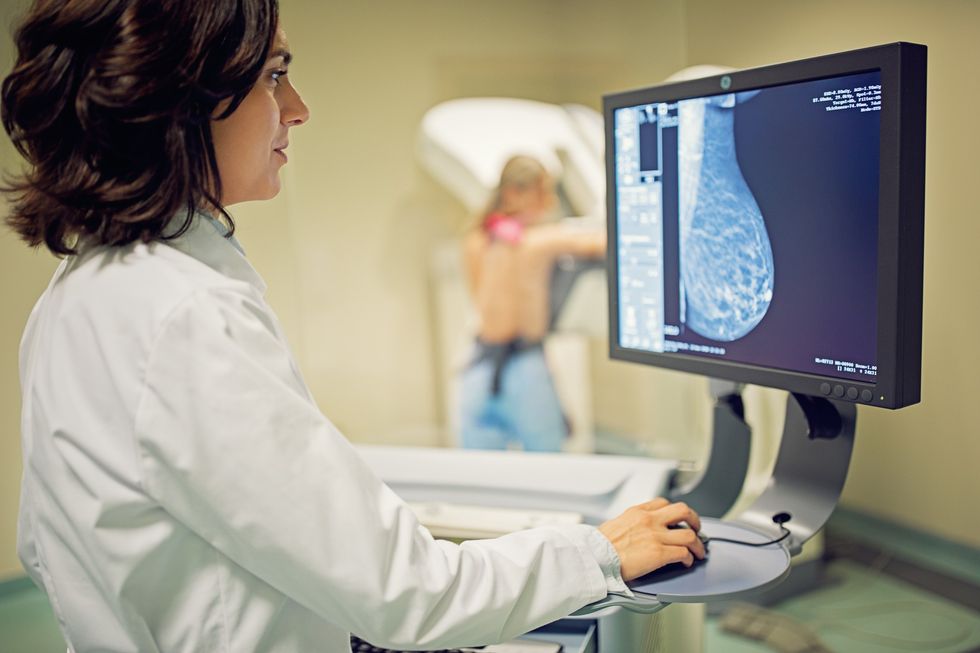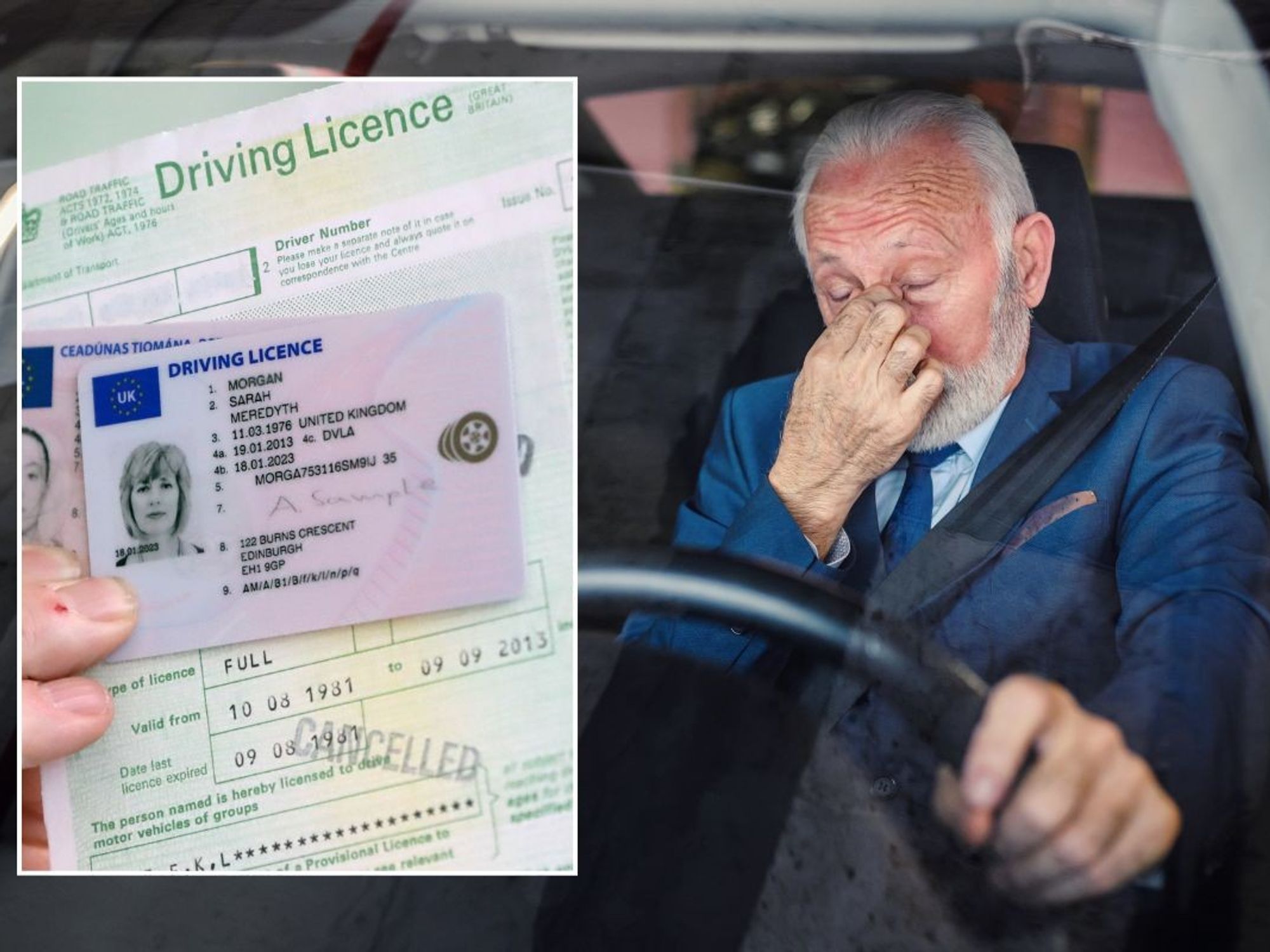'Landmark' AI screening to 'speed up breast cancer diagnosis' as NHS launch major trial
WATCH: Michelle Dewberry is joined by cancer victim and campaigner Susan Farrall
The groundbreaking study will examine at least 700,000 breast cancer scans
Don't Miss
Most Read
Trending on GB News
The NHS is launching the world's largest artificial intelligence trial for breast cancer detection - which is set to analyse hundreds of thousands of mammograms across England.
The groundbreaking study will examine at least 700,000 breast cancer scans over the next few years to determine if AI technology can match the accuracy of human radiologists.
The initiative, announced to mark World Cancer Day, aims to revolutionise how mammograms are assessed in hospitals across the country.
If successful, the trial could transform the current system where two radiologists must review each scan, potentially streamlining the diagnostic process.

The NHS is launching the world's largest artificial intelligence trial for breast cancer detection - which is set to analyse hundreds of thousands of mammograms across England
Getty
In the new trial, five different AI systems will analyse approximately 462,000 mammograms at 30 breast cancer screening centres across England, with implementation beginning later this year.
The remaining 238,000 scans will continue to be assessed using the traditional method of two radiologists reviewing each image.
The results from both approaches will be compared to evaluate the effectiveness of AI in breast cancer detection.
The £11 million study, funded by the National Institute for Health and Care Research, represents the most extensive trial of its kind globally.
The trial follows promising results from a smaller Swedish study in 2023, which demonstrated AI's safety and effectiveness in mammogram analysis.
The Swedish research, involving 80,000 women, showed that AI could safely reduce radiologists' workload by approximately half.
LATEST DEVELOPMENTS:
Importantly, the study found no increase in false positive results when using AI technology.
If successful, the NHS trial could eliminate the need for two radiologists to review every mammogram, with AI providing the second opinion instead.
This change could free up specialist doctors for other critical work and reduce waiting times for diagnostic test results.
Prof Lucy Chappell, chief scientific adviser at the Department of Health and Social Care, said: "This landmark trial could lead to a significant step forward in the early detection of breast cancer, offering women faster, more accurate diagnoses when it matters most."
Cancer Research UK's head of strategic evidence, Samantha Harrison, welcomed the initiative.
"More cancer cases are diagnosed every year, and innovations like this could help reduce pressure on NHS staff and cut waiting lists," Harrison said.
"We need more research to understand how AI could help with cancer screening, so it's fantastic to see the UK government funding this trial."

The groundbreaking study will examine at least 700,000 breast cancer scans over the next few years to determine if AI technology can match the accuracy of human radiologists
Getty
Prof Katharine Halliday, president of the Royal College of Radiologists, acknowledged AI's "immense potential" in managing growing demands for diagnostic tests and cancer care.
However, she emphasised that while promising, AI technology also presents "major risks".
Halliday highlighted concerns about ensuring AI algorithms produce equally reliable results across different ethnic backgrounds.
She also expressed worry about the timing of the trial results, noting that the NHS faces a projected 40 per cent shortfall in consultants by 2028.
The extended timeframe for trial results, which will take several years to produce, compounds these staffing concerns.
Health Secretary Wes Streeting announced plans to publish a detailed national cancer plan aimed at strengthening Britain's position in cancer treatment.
The plan is intended to "unleash Britain's potential as a world leader in saving lives from this deadly disease."








